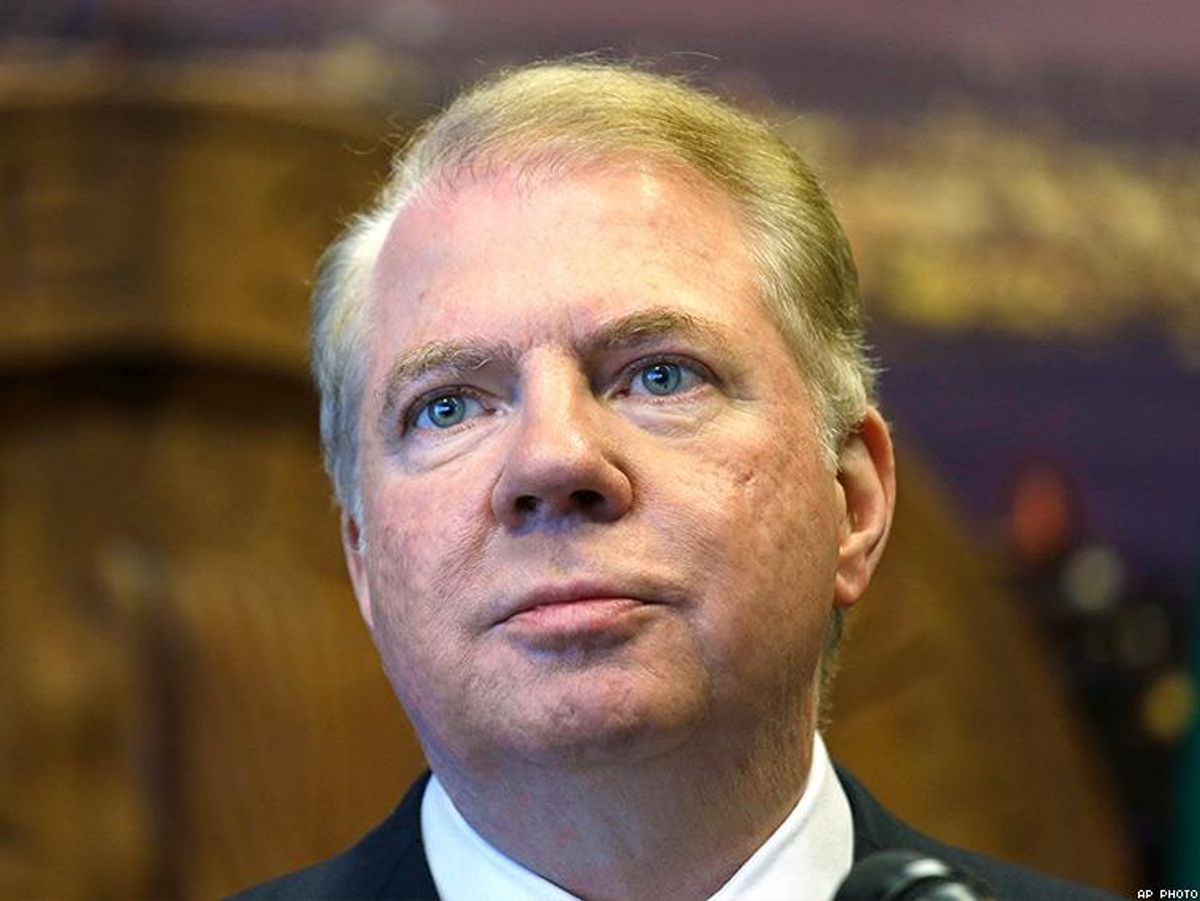Out Seattle Mayor Ed Murray announced Tuesday that he will not run for reelection, an announcement that came on the heels of a sex-abuse scandal. By many accounts, he was good for Seattle. Called "one of America's most progressive mayors" by
Governing magazine, he is credited with having helped raise the minimum wage to $15 and has been a champion of
LGBTQ rights.
For many gay men, like myself, he was an example that we could be a positive force in the political process.
But we have to accept that sometimes our heroes can also be abusers.
Four men have come forward alleging that Murray sexually abused them when they were homeless teens. Reports indicate that one of the accusers was Murray's foster son, who told The Seattle Times that Murray "began sexually abusing him as a 13-year-old and later paid him for sex." Another one of the alleged victims said he waited years to come forward due to the "shame, the embarrassment, the guilt, the humiliation that I put myself through and that he put me through."
There are many truths and important lessons in the statements from these men.
Available research shows that one in three runaway homeless youth have been forced to perform a sexual act against their will and more than one in three homeless youth engaged in survival sex. Eighty-two percent traded sex for money, and nearly 50 percent traded sex for a place to stay. LGBTQ youth specifically are three times more likely to have engaged in survival sex. Abusers often prey on and exploit these vulnerable young people who are without support systems and basic necessities like money, food, and shelter.
It may be argued that consent is involved with survival sex, but
transgender advocate Janet Mock, who engaged in survival sex herself as a young person, noted that "engaging in sex trades increases a person's risk for ... sexual abuse, and violence." For example, Frances Aponte-Veras, who runs one of
Safe Horizon's drop-in center in New York City for homeless youth, tells me, "A lot of our young people describe being victimized while trading sex. For example, a person may bring out a weapon and force them to do whatever they want."
Additionally, many survivors don't report right away. Experiencing abuse is an extremely traumatic experience and survivors can take years to disclose or report. Research from the Rape, Abuse, and Incest National Network shows that fearing retaliation is one of the most common reasons why victims don't come forward sooner or at all. A dear friend of mine is a survivor, and his abuser threatened that he would tell people my friend was a "faggot" or his family would lose their home (his father was the landlord) if he ever said anything. So he kept quiet and tried to suppress those terrible memories for nearly 20 years.
It's unfair to judge why and when a survivor chooses to report. Regrettably, certain avenues to legal justice can expire if a survivor doesn't report in a certain time period.
One of Murray's alleged victims, Jeff Simpson, tried to sue Murray in 2007 over the claims of sexual abuse, but his
lawyer said the case "collapsed because of the statute of limitations -- not credibility issues." Statutes of limitations in cases of childhood sexual abuse are highly contested issues. Some feel that something that happened 10, 20, or 30 years ago should be left in the past. They argue that an abuser may have changed and a victim's memory fades.
Others, like me, believe survivors deserve justice when they are ready to pursue it. In my home state of New York, for example, most survivors have only until age 23 to come forward and file charges. As a result, survivors have had the doors of justice slammed in their face while their abuser effectively ran out the clock. On the ground here, we are urging state lawmakers to pass the Child Victims Act to end the limitations.
Murray maintains that he is innocent, adding that these allegations "paint me in the worst possible historic portraits of a gay man." And he's right. There is a villainous stereotype that gay men are sexual predators. I vehemently reject this stereotype, as it has no basis in fact and is a gross mischaracterization.
I understand that many Seattle residents may feel a loss here. That's valid. Murray appeared to have been a great mayor for the city. Even his former foster son -- one of the men he allegedly abused -- went on record to say that "[what he] has done for the city of Seattle has been awesome, man. I feel for Seattle. I do. But I think that these are some of the consequences he has to face."
The truth remains: I don't know what really transpired between Murray and these men, but I do know our society is so quick to dismiss or discredit victims when they come forward. Even if Murray has been an important champion for LGBTQ rights, sometimes our heroes can also be abusers.
BRIAN PACHECO is the director of public relations at Safe Horizon, the nation's leading victim services agency, empowering survivors of and those affected by child abuse, domestic violence, youth homelessness, sexual assault, and human trafficking to move from crisis to confidence. 
